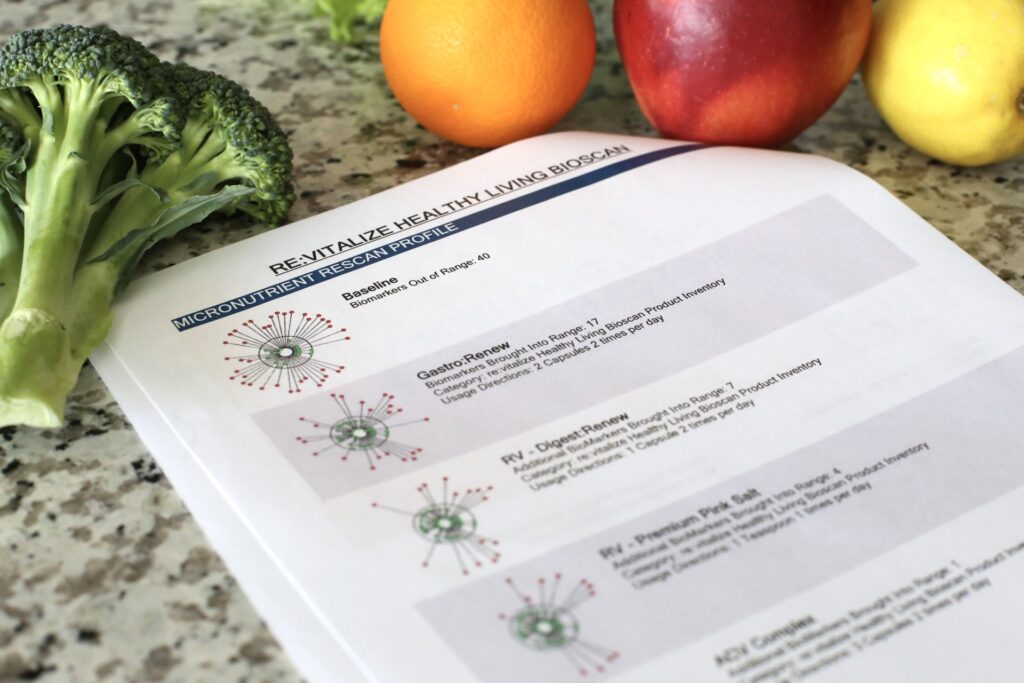The Role of Planning in Achieving Lasting Weight Loss
With any new journey, following a set plan is going to get you a lot farther than trying to wander toward your destination—a weight loss journey is the same. Without a plan, you’re unlikely to maximize your full potential in your weight loss and wellness efforts.
As with any venture, a weight loss plan will offer you direction and support along the path. Creating an outline for your efforts will ensure that you take the steps necessary to meet your personalized nutritional needs and set goals that make sense for you. A program that guides you in how to create a weight loss plan can allow you to stay motivated and give you the tools to succeed in achieving your goals.
Benefits of Creating a Weight Loss Plan
A tangible weight loss plan can provide you with direction and motivation on your journey. Creating a weight loss plan offers a range of benefits, from helping you build guiding goals to ensuring you’re getting the right nutrition.

Defining Your Why
A huge part of your weight loss plan is setting the foundation for why you are embarking on the journey at all. Your “why” is what will center you throughout your weight loss journey, reminding you of your reason for starting in the first place, especially when things get tough.
When developing your why, consider the mental, physical, and emotional factors involved, and think about how a weight loss journey will improve your health and wellness by the end of it. Are you driven by wanting to feel more confident in your clothes? Are you looking forward to feeling better walking up a flight of stairs?
Whatever your reason for wanting to lose weight, remembering your rationale is instrumental in actually achieving your goals. By looking back at the why, you can use it as a reason to overcome the various challenges and realize lasting success.
Assessing Current Lifestyle & Habits
Any good plan starts with a solid foundation. By crafting a weight loss plan, you will ideally consider your current lifestyle so you can outline areas of improvement and learn what you can build upon.
The downfall of many weight loss endeavors is that people don’t consider the habits that caused them to gain weight in the first place. When you develop a weight loss plan, you’re going to take a look at your current habits so you can create a plan you can use to improve upon them and sustain your weight loss.
Ask yourself questions like:
- How much am I currently exercising?
- Am I getting a well-rounded diet with protein and fiber-rich foods?
- How are my stress levels? Do I need to take steps to reduce stress?
- Am I supporting my holistic health with regular sleep?
Once you have your answers, you can use them to guide your vision for the future and set goals to achieve. At this point, all that matters is setting the right goals.
re:vitalize weight loss & wellness can help you in the benchmarking process. Each of our programs starts with a Body Composition Scan & Metabolic Age Analysis, helping us gather a current picture of crucial biometrics. This analysis will give better insight into your current starting point so that you have a firm understanding of ways you can improve and can set measurable metrics for understanding your progress along your journey.

Experience Lasting Weight Loss Success with re:vitalize Our programs are built with sustainability in mind, empowering you with a mindset, plan, and healthy habits that bring long-term weight loss success
Realistic Goal Setting
Goal-setting is part of any good plan. A weight loss plan will assist you in setting achievable goals, both in the short-term and long-term. Sure, we all have a goal of how we want to look, but we don’t achieve that perfect result right away—it takes careful steps to get there.
As you set weight loss goals, consider the stepping stones necessary to achieve them. Creating a plan helps you take your journey one small goal at a time so that you see consistent success.
As you set goals in your plan, consider the SMART goal criteria for your goals:
- Specific – Have a clear goal in mind and clear criteria for what success looks like.
- Measurable – Include a metric that you can use to measure your progress.
- Attainable – Only set a goal that you can realistically achieve in a reasonable amount of time.
- Relevant – Make sure any goals you set are relevant to the bigger-picture goal.
- Time-bound – Set a time by which you’d like to have your goal completed.
That said, achieving the goals is often easier said than done. A holistic weight loss program may be able to help you carry out your goals by providing a source of support and accountability.
Our programs at re:vitalize feature the support of board-certified nutritionists and our expert weight loss coaches, providing daily check-ins and weekly progress monitoring to help you reach your goals.
Crafting a Nutrition Plan
Nutrition is a critical component in the weight loss journey. Eating foods rich in fiber, protein, and phytonutrients will provide your body with the fuel it needs to go about your day while quelling cravings and inflammation that lead to weight gain. A plan is almost essential to ensure you’re getting the most out of your nutrition.
Getting the right nutrients in your daily diet—and getting enough of them—is often easier said than done. Factoring nutrition into your weight loss plan will help you stay intentional about eating the foods that will benefit your body the most. A plan is also crucial as everyone’s body is different and may need different nutrients to support their overall health and wellness.
Building an effective nutrition plan on your own isn’t always easy, as there can be a ton of question marks in the process. At re:vitalize, we use our unique biometric technology to highlight which nutrients are optimal for your weight loss. With this information, you can create a personalized meal plan using the resources on our member portal.
Prioritizing Self-Care
Self-care is an underappreciated factor in the weight loss journey, as factors like stress and sleep have very understated impacts on your weight loss potential.
Stress can have a negative impact on your metabolic health by increasing levels of the hormone cortisol and slowing your metabolism. In a fight-or-flight state brought on by stress, your body puts itself in a position that makes it likely to store sugar from the foods you eat as fat, causing you to gain weight.
Meanwhile, a lack of sleep can create a hormone imbalance that causes you to overeat and make you less likely to engage in physical activity.
Prioritize self-care by:
- Maintaining a consistent sleep routine in a dark, comfortable environment
- Getting between 7-9 hours of sleep each night
- Practicing stress management techniques like meditation and mindfulness routines
- Making time for activities and hobbies you enjoy in your daily routine
Create a Personalized Weight Loss Plan That Works for You
From holding you accountable to highlighting your key goals to work towards, a weight loss plan offers immeasurable value. However, the biggest challenge lies in knowing how to create a weight loss plan that will work for you.
At re:vitalize weight loss & wellness, we’ll help you create a roadmap for your weight loss journey with our holistic Weight Loss & Metabolic Reset programs. We’ll use our Body Composition Scan & Metabolic Age Analysis to create a plan that is personalized completely to you.
Our board-certified nutritionists are here to help you achieve sustainable weight loss once and for all. We offer programs to fit a wide range of personalized needs and make losing weight attainable for any lifestyle, including our Flexible Lifestyle Program and virtual weight loss programs.
Schedule a 1:1 consultation with our team so we can help you get started on a weight loss plan that best supports you.



